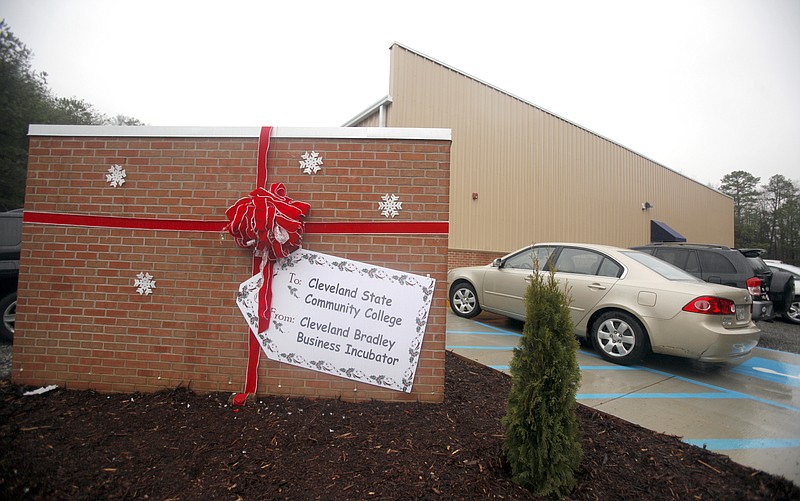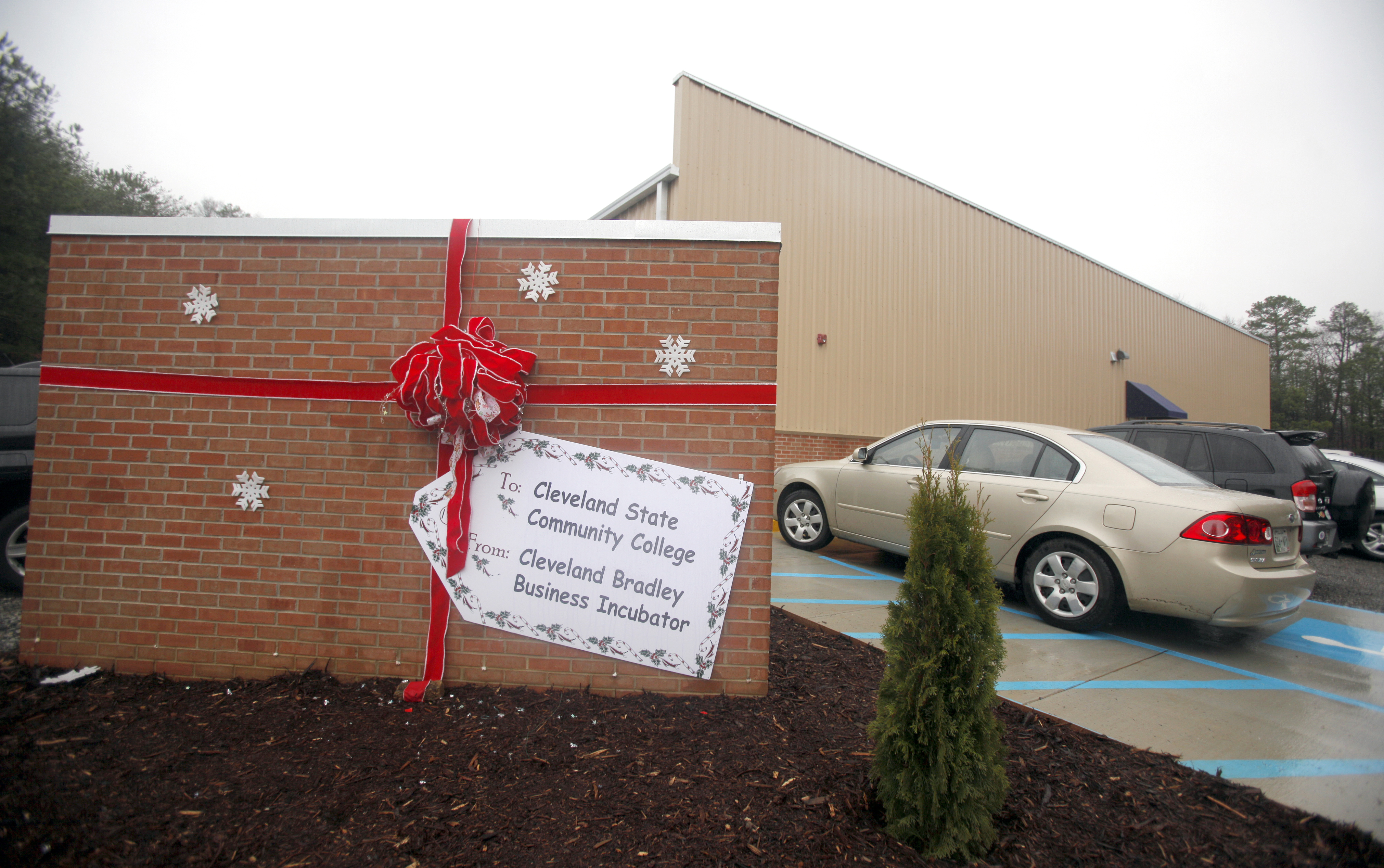CLEVELAND, Tenn. -- A new business incubator devoted to startup companies focused on energy efficiency and the environment opened here Friday.
The Cleveland/Bradley Energy Center is part of the Cleveland/Bradley Business Incubator, both located on the Cleveland State Community College campus.
Incubator board chairman Jeff Morelock turned over the keys to the new building to Cleveland State President Carl Hite.
"We see it at the college as a continuation of our motto 'Start Something Great,' and we can continue to build on this and focus our programs and curriculum on issues related to energy and sustainability," said Allan Gentry, head of the college's technology department.
In addition to new small businesses, the college has a laboratory in the building linked to energy savings for transportation. The lab already has several hundred gallons of used cooking oil that will be turned into biodiesel fuel for the campus.
Incubator Executive Director Hurley Buff said the new building is the end of a nearly 10-year project. But already, he said, 11 jobs have been created in the building, with more to come.
"This building will have businesses in the business of alternative energy; technology that supports alternative energy," Buff said.
Two startups opened Friday in the incubator: Air Tight Spray Foam Insulation and Tennessee Automation Services.
Cleveland and Bradley County Mayors Tom Rowland and D. Gary Davis addressed a group meeting in one of the building bays.
"The city is happy, not to make an allocation toward this building but an investment," Rowland said.
Davis said the business incubator "has been an amazing success since its beginning, and I have no doubt the green incubator will be, too."
The city and county contributed $75,000 each. The USDA Rural Development Agency contributed $99,000, and the federal Appalachian Regional Commission another $150,000.
The ARC portion includes federal and state funds and was administered by the Tennessee Valley Authority.

